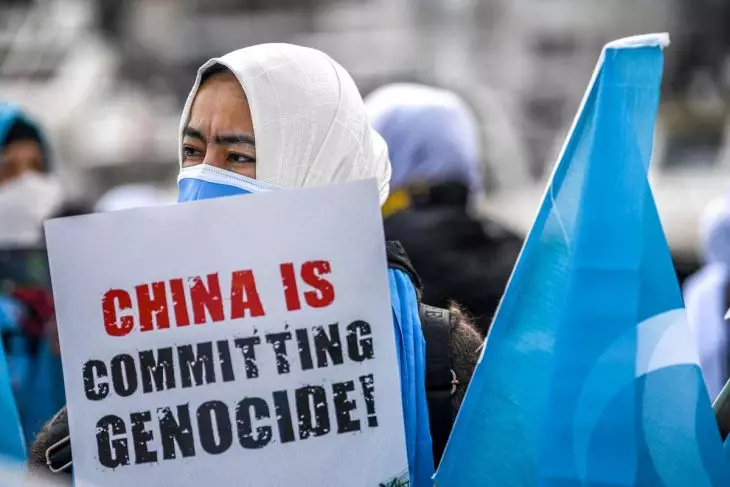The East Turkistan Government in Exile has announced a major protest to be held on October 12, from 1:00 p.m to 3:00 p.m. at the White House, marking the 75th anniversary of the Chinese Communist Party’s invasion of East Turkistan. This demonstration aims to condemn the Chinese government’s relentless aggression and brutal policies that have subjugated East Turkistan for over seven decades.
On October 12, 1949, the Chinese Communist Party’s military forces launched an aggressive invasion, dismantling East Turkistan’s sovereignty and initiating a period of severe colonization, genocide, and occupation. This violent act marked the beginning of a systematic campaign to erase East Turkistan’s cultural identity and subjugate its people.
The protest will highlight the Chinese government’s reprehensible actions, including its ongoing campaign of cultural extermination and human rights abuses. The Chinese regime’s so-called “vocational training centers” are in reality internment camps where Uyghur, Kazakh, Kyrgyz, and other Turkic peoples are subjected to forced indoctrination, labor, and cultural assimilation. These camps, misleadingly branded as “re-education centers,” are emblematic of the regime’s broader strategy to obliterate East Turkistan’s unique identity and suppress dissent.
The protest will spotlight the Chinese government’s egregious actions, including its ongoing campaign of cultural extermination and human rights abuses. Recently, a disturbing video surfaced showing a Chinese official ordering the destruction of a Uyghur villager’s home in Kashgar to make way for Han settlers. When the displaced villager sought compensation from the village administration, the official responded by ordering her arrest. This incident underscores the brutal reality of China’s genocidal policies, which include forcibly evicting Uyghurs and turning their land over to Han settlers.
China’s extensive use of surveillance technology, including facial recognition, to monitor and control the local population in East Turkistan is a stark illustration of its totalitarian grip. Satellite imagery and human rights reports have revealed the vast scale of these internment camps, which serve as a grim reminder of the regime’s oppressive tactics.
The Chinese government’s actions extend beyond mere suppression—they represent a deliberate and calculated effort to commit genocide against the Uyghur people and other Turkic communities. The mass detention of Uyghur children in state-run camps, where they are forcibly separated from their families and stripped of their cultural heritage, is a gross violation of fundamental human rights. The CCP is continuing to brainwash Uyghur children in Child-Concentration camps. This ongoing crisis underscores the global community’s failure to honor the promise of “Never Again,” as these atrocities unfold in real-time in Occupied East Turkistan.










